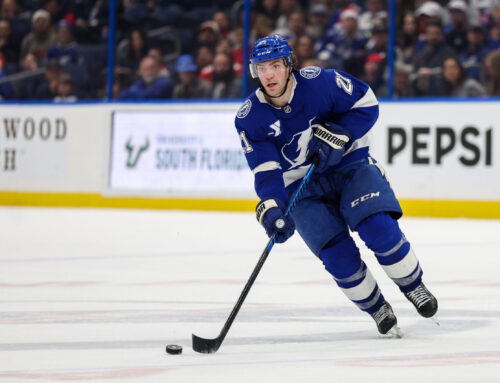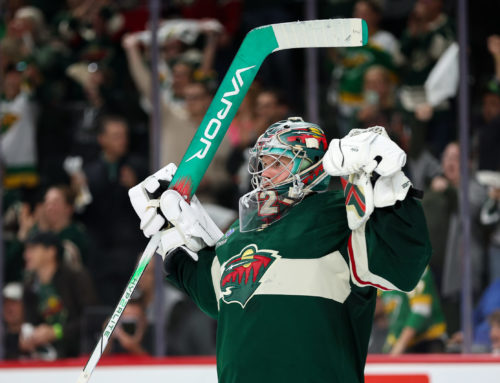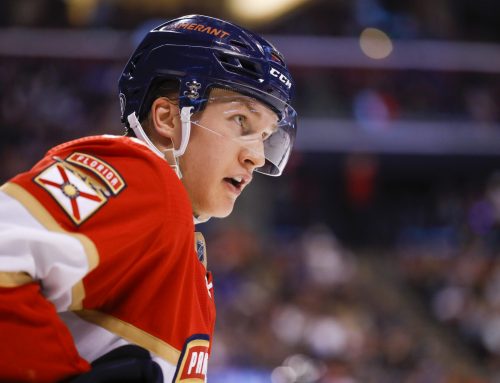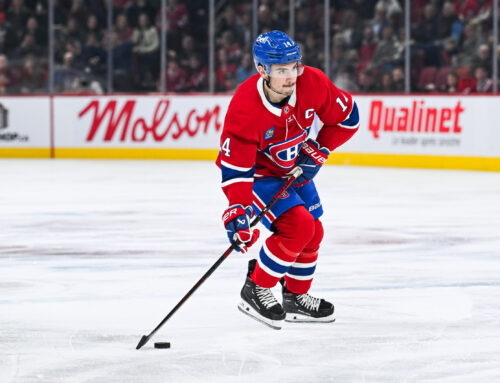
Roos takes a look at the fantasy value of bought-out players
Over the next few weeks a lot of attention will be paid to the high profile signings, trades, and draft picks that teams make. And rightfully so – they'll all have a huge impact on fantasy hockey leagues now and down the road. But you need to make sure not to overlook the compliance buyouts that will occur as well (the deadline for 2013 is July 4th), and the effect they'll also have on fantasy hockey.
With that in mind, in this week's column I'll give advice on how to evaluate bought out players, and cover signs to look for in predicting whether a bought out player will succeed or fail this season.
But first, it's worth going over what buyouts are, why they're happening, and some of the rules that apply to them.
Quick Summary of Compliance Buyouts
As part of the new collective bargaining agreement, and in view of the nearly 8.5% salary cap decrease (from $70.2 to $64.3 million) set for 2013-14, all 30 NHL teams are allowed to "buy out" up to two of their current players before this time next year. Whoever is bought out will receive a portion (the exact percentage will depend on age) of what would have been due under his existing contract, but the silver lining for teams is that nothing (not a penny of either the buyout amount or what would've been earned by the player under a bought out contract) will count against the team's salary cup number.
A team could've used both its two buyouts this year (and some – like Montreal and Philadelphia – have already done so), or only use only one buyout now and save one for next year, or not use any just yet. And as we saw during the regular season with Scott Gomez and Wade Redden, players who are bought out can sign with any NHL team except the one which bought them out (that way, the buyout cannot be used as a way to bring a player back at a more reasonable, discounted price).
Who's Been Bought out So Far?
Now that we know the basics about what buyouts are and how they work, you'll want to double check to see if any players on your fantasy teams were among those bought out. You can find a list of 2013 bought out players here.
If you're one of the many GMs whose fantasy team includes at least one bought out player, you're going to want to determine what effect this will have on that player and how this will alter his value. And even if you don't have any bought out players, you should examine if it would be worthwhile to obtain any of them either in your upcoming draft or via trade.
Should You Keep (or Take Steps to Obtain) a Bought out Guy?
The short answer is – maybe. The first thing you need to realize is that every bought out player will have some big question marks surrounding him. But when you think about it, if a player was bought out then chances are there would've been questions and concerns about him even if somehow he had stayed with his former team. Take Daniel Briere for example – if Philadelphia had chosen to keep him, it's not clear how much he would've still played or whether he would have factored into the top six. Now that he's been bought out, those questions have simply been replaced by new, different questions.
In the end, like any true fantasy hockey decision, the best you can do is assess the situation (and question marks) from all angles, which is what I try to help you do in the sections below.
Bought out players can still be fantasy worthy
The #1 thing to remember is just because a team buys out a player (like Vincent Lecavalier or Daniel Briere, both of whom still had some fantasy worthiness on their former team), that doesn't automatically make him fantasy unworthy. All it means is either the player was being paid way too much in relation to his value, or the team was (or would be) so far over the lower cap number for 2013-14 that they had no choice but to buy out a player, and this was the player they chose.
The key is you have to look at bought out players as having a clean slate of sorts – yes, there will be the mental baggage of having been bought out (more on that below), but whether they succeed or fail on their new team will be based on pretty much the same factors (ice time, linemates, etc.) as any player who goes to a new team in the offseason.
Don't ignore the "I'll show you!" factor
Being bought out is basically the hockey equivalent of one spouse (let's call him Ed) divorcing another (let's call her Mary), where Ed files for divorce despite knowing that he'll likely have to dole out spousal support and perhaps make other payouts to Mary, who not only will be getting the money from Ed but also can then turn around and marry anyone else! And just as in real life, the "dumped" ex-spouse often will use this as motivation to get in shape or do other personal improvements in order to make the one who dumped them regret their decision – I call it the "I'll show you!" factor.
Rest assured that the "I'll show you!" factor exists in hockey too, and it can work wonders to (re)invigorate a career. The closest comparison to being bought out in fantasy hockey is to get waived or released, and if you take a look at the elite scorers for 2012-13, you see two guys (Martin St. Louis, Chris Kunitz) in the top seven that were either waived or released by at least one previous team early in their career. I'll show you indeed!
I'd look for a lot of bought out players to do all they can (like extra training, fixing their diet, showing up early for camp) to show their former team that it made a mistake, and to prove to the hockey world (most importantly their new team) they still have the talent and drive to succeed.
Watch out for letdowns
At the same time, I think there's also a chance that some players will sign with new teams but end up not meeting expectations, whether due to the pressure of always having their "bought out" status in the back of their mind or perhaps the comfort of the combined money they're going to get from their new contract plus the funds from their buyout. The players who might be more vulnerable to this kind of let down are ones who struggled with mental toughness issues in the past, or whose dedication and day-to-day effort has been questioned throughout their career.
The Same Leopard Won't Suddenly Get New Spots
I made this point in my trade deadline column and it applies just as much to this situation. What it boils down to is you need to resist the lure of grabbing a perennially disappointing player just because he's going to a new team after being bought out. Take Tomas Kaberle for example. Even though he's actually scored a not so horrible 39 points in his last 104 games, he's also 35 years old and in the past two seasons has looked like he's been playing with skates made out of stone – and that's when he actually plays! Yet the lure of his once great stats might convince you that he could get a fresh start on a new team and discover the fountain of youth. Don't fall for it. Look no further than what happened with Wade Redden when he went to the Blues and later the Bruins — same leopard, same spots.
Final Verdict
The truth is, I see bought out players as perhaps the ultimate high risk high reward candidates this offseason. The ones most likely to succeed are those who tasted success in the past and might have become complacent with their previous team, like Vincent Lecavalier. Ones who could fail are those who perhaps never deserved their previous contract in the first place and struggled with mental toughness and dedication to an extent that it's likely they won't be able to get past having been bought out, like Ilya Bryzgalov. For the other players, like a Daniel Briere, a lot will depend on where they sign (will they get a guaranteed good spot?), the duration of their new contract (fewer years is likely to lead to more incentive to play well), and whether they can get past having been bought out.
In the end, I would shy away from making a huge investment in a bought out player, as the potential for a bust will be there no matter how good their situation looks on paper. But I'd also be willing to value some of these guys higher than I would have if they didn't get bought out. For example, let's say that Lecavalier signs with a team like Ottawa. I'd actually value Lecavalier higher on Ottawa after having been bought out than I would've if he had just been traded there instead or had stayed with the Lightning, and it's largely because the "I'll show you" factor coupled with his still existing talent.
Recently, from Holding Court:
| Points Can Be Deceiving | ||
| 7 Playoff Duds | ||
| Fun with Google Instant Search | ||
| Eight Good Players Who Aren’t Worth the Asking Price | ||
| Eight Players Who Aren’t As Bad As They Seem |






 MIN
MIN PHI
PHI MTL
MTL COL
COL ANA
ANA CHI
CHI CAR
CAR
